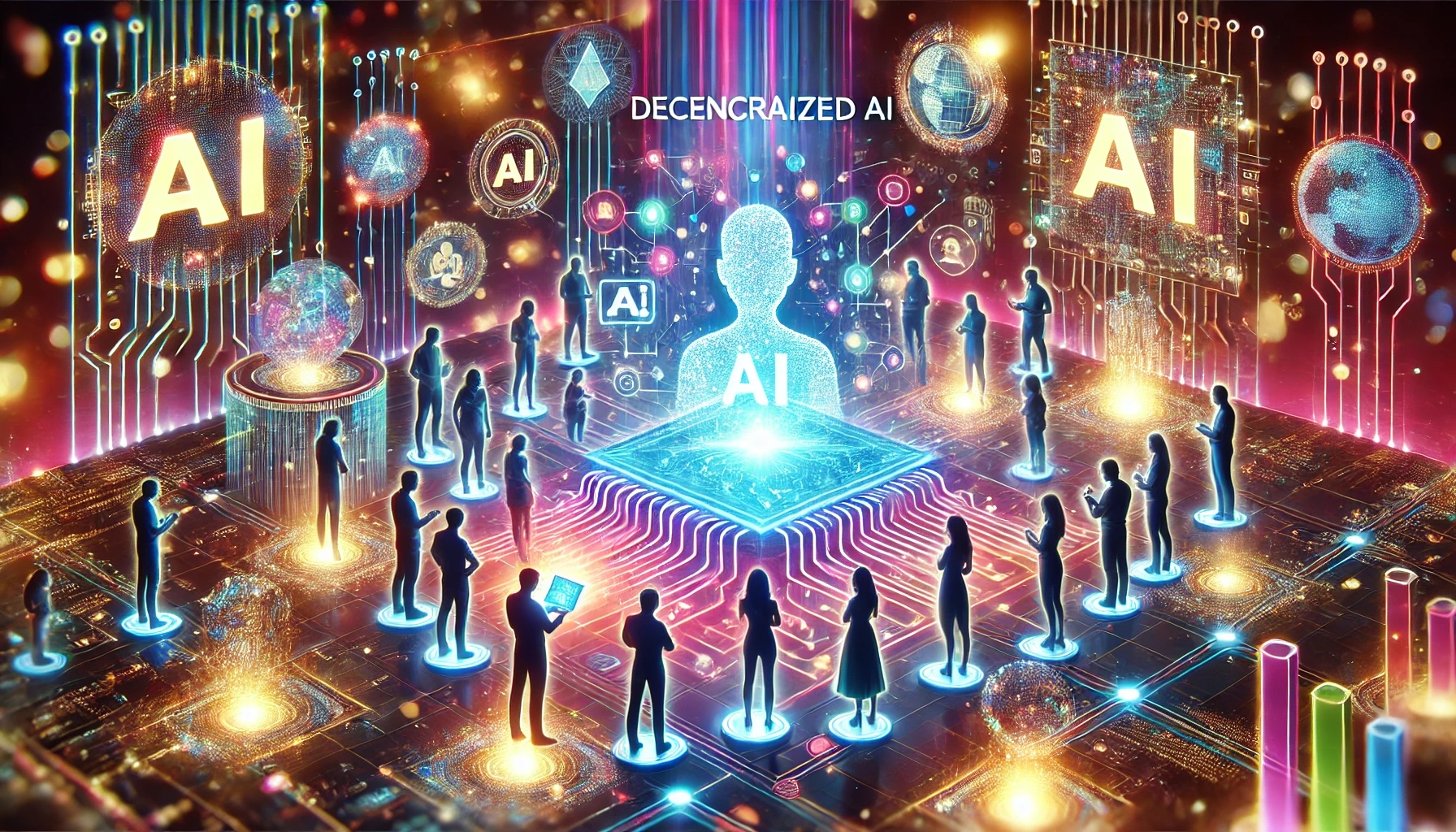Artificial intelligence (AI) is rapidly transforming various industries, with projections indicating substantial growth and economic contributions in the coming years. The healthcare, finance, and retail sectors are already leveraging AI’s potential to enhance efficiency and drive innovation. However, the centralized nature of current AI development poses significant risks to data privacy, ownership, and creative control. This is where decentralized AI (deAI) emerges as a transformative solution, empowering individuals and fostering a more equitable and transparent AI ecosystem.
Decentralized AI leverages blockchain technology to distribute the development, deployment, and governance of AI systems across a global network. Unlike traditional centralized models controlled by a few corporations, deAI promotes open participation and transparency, offering numerous advantages:
- Ownership and Privacy: Users retain control over their data, ensuring transparent and traceable contributions to AI model training.
- Fair Compensation: Platforms like Bittensor, which uses a tokenized ecosystem, reward participants for their contributions of computational resources, data, and expertise.
- Security: The decentralized architecture minimizes vulnerabilities by eliminating single points of failure, making systems more resilient against cyberattacks.
- Global Collaboration: deAI fosters a collective intelligence transcending geographical and institutional boundaries, democratizing access to AI development.
- Transparent Decision-Making: Community-driven governance ensures that AI evolves in alignment with participant values, not solely corporate profit motives.
The need for deAI is further emphasized by the ongoing debate surrounding AI training and copyright concerns. Current AI models often rely heavily on copyrighted material for training, raising questions about fair use and compensation for creators. Lawsuits filed by authors and media organizations against companies like OpenAI and Microsoft highlight the tension between AI innovation and intellectual property rights.
Decentralized AI offers a compelling alternative by ensuring contributor rights are respected and rewards are distributed fairly. Several deAI projects are spearheading this movement, demonstrating the potential for collaborative and equitable AI development:
- Bittensor: Rewards participants with TAO tokens for training AI models within a decentralized network, fostering community-driven innovation.
- Fetch.ai: Provides decentralized AI tools for automating processes in sectors like supply chain, mobility, and energy, showcasing AI’s potential for real-world optimization while maintaining decentralization.
- SingularityNET: Operates as an AI marketplace where developers can create, share, and monetize AI services, promoting collaboration and transparency in AI development.
- Ocean Protocol: Functions as a decentralized data marketplace that enables secure data sharing for AI development, prioritizing ethical data use and ensuring privacy and fairness in AI training.
- Numerai: Offers a decentralized data science platform for financial modeling and predictions, empowering data scientists while safeguarding their anonymity and intellectual contributions.
These projects exemplify how deAI can address the limitations of centralized AI systems by establishing ecosystems that prioritize creativity and innovation. By empowering individuals and ensuring fair compensation for their contributions, deAI aligns with the principles of intellectual property protection. The transparent and traceable nature of decentralized networks fosters trust, a crucial element currently lacking in the centralized AI landscape.
Looking ahead to 2025 and beyond, deAI is poised to redefine the future of AI. It represents a shift towards a more equitable and inclusive model where creativity, data ownership, and transparency are paramount. The current reliance of closed AI systems on freely available data has raised awareness among creators and copyright owners about the true value of their data and the importance of ownership.
Decentralized AI ecosystems offer a blueprint for developing AI that aligns with societal values, protects creators’ rights, and fosters more equitable outcomes. As these platforms continue to evolve, they will pave the way for a future where AI serves the collective good, driven by collaboration, transparency, and empowerment.


Leave a Reply